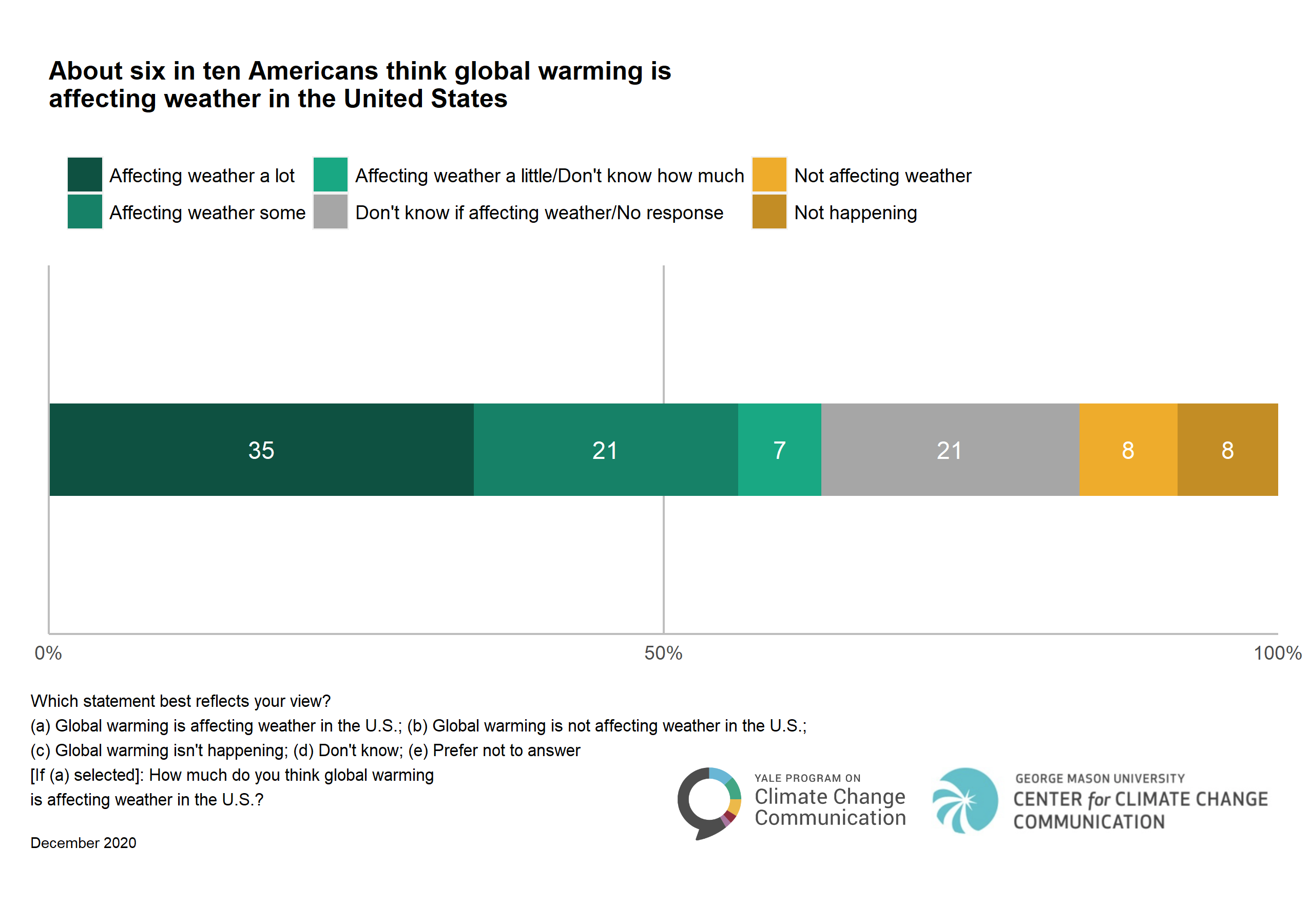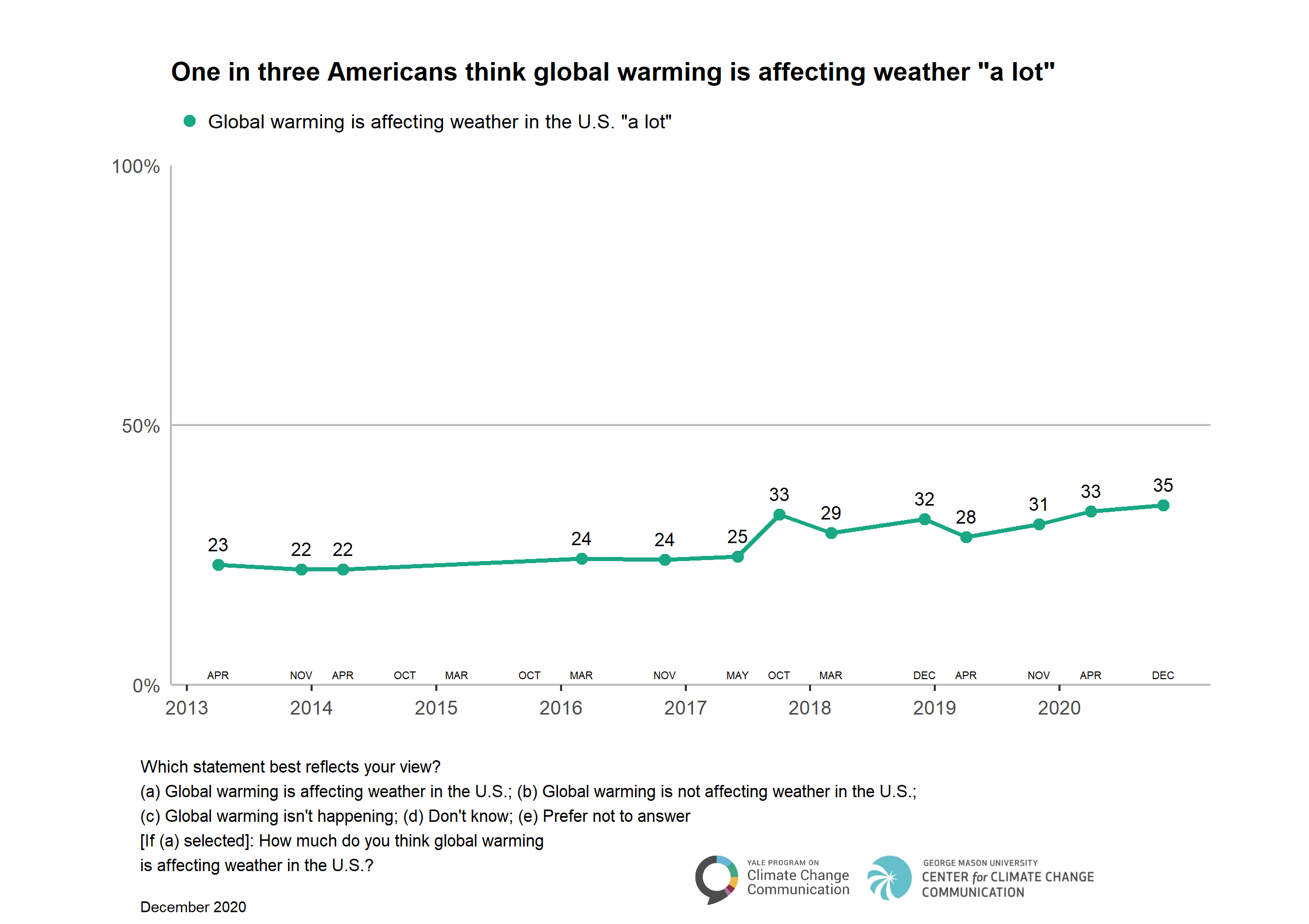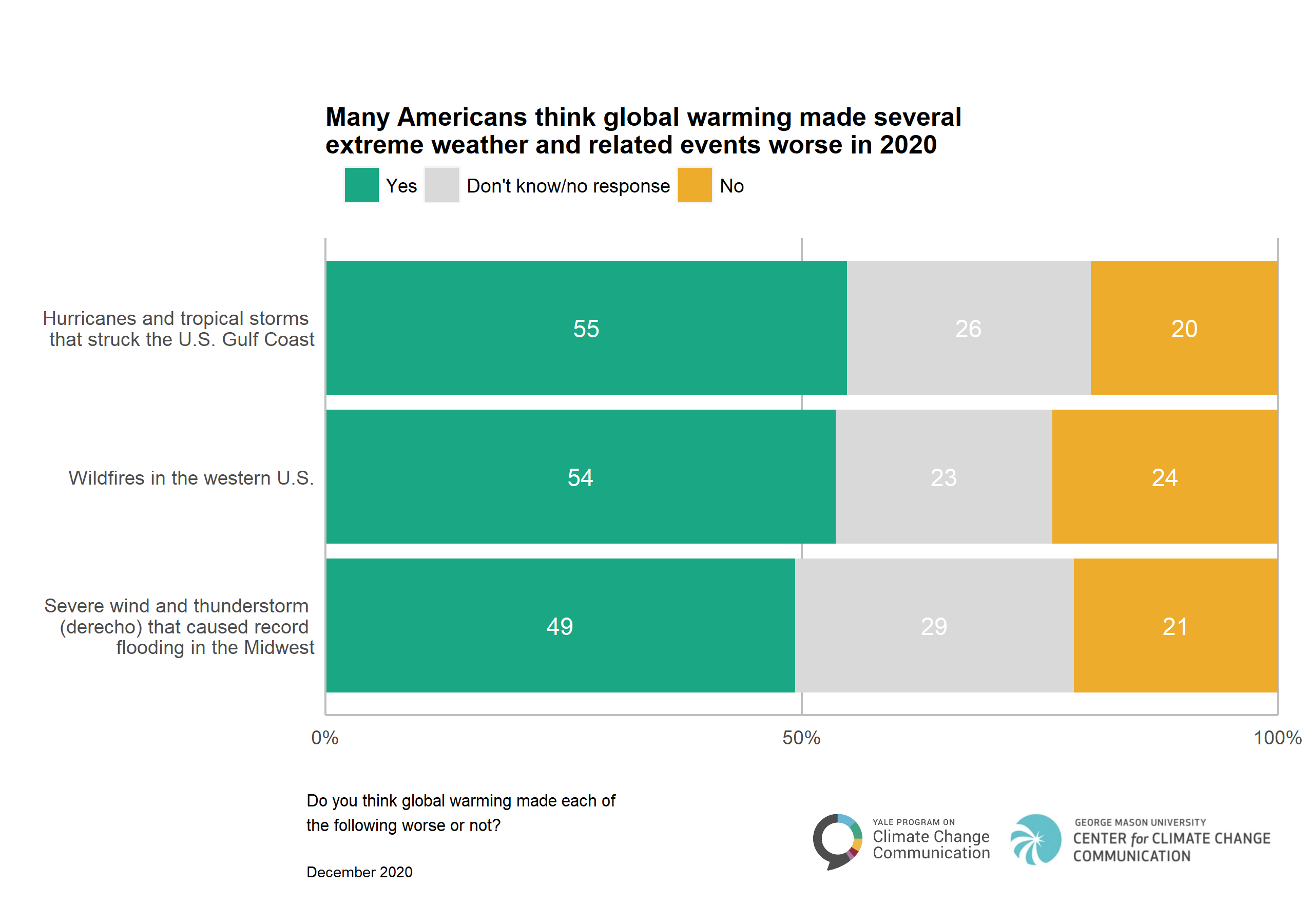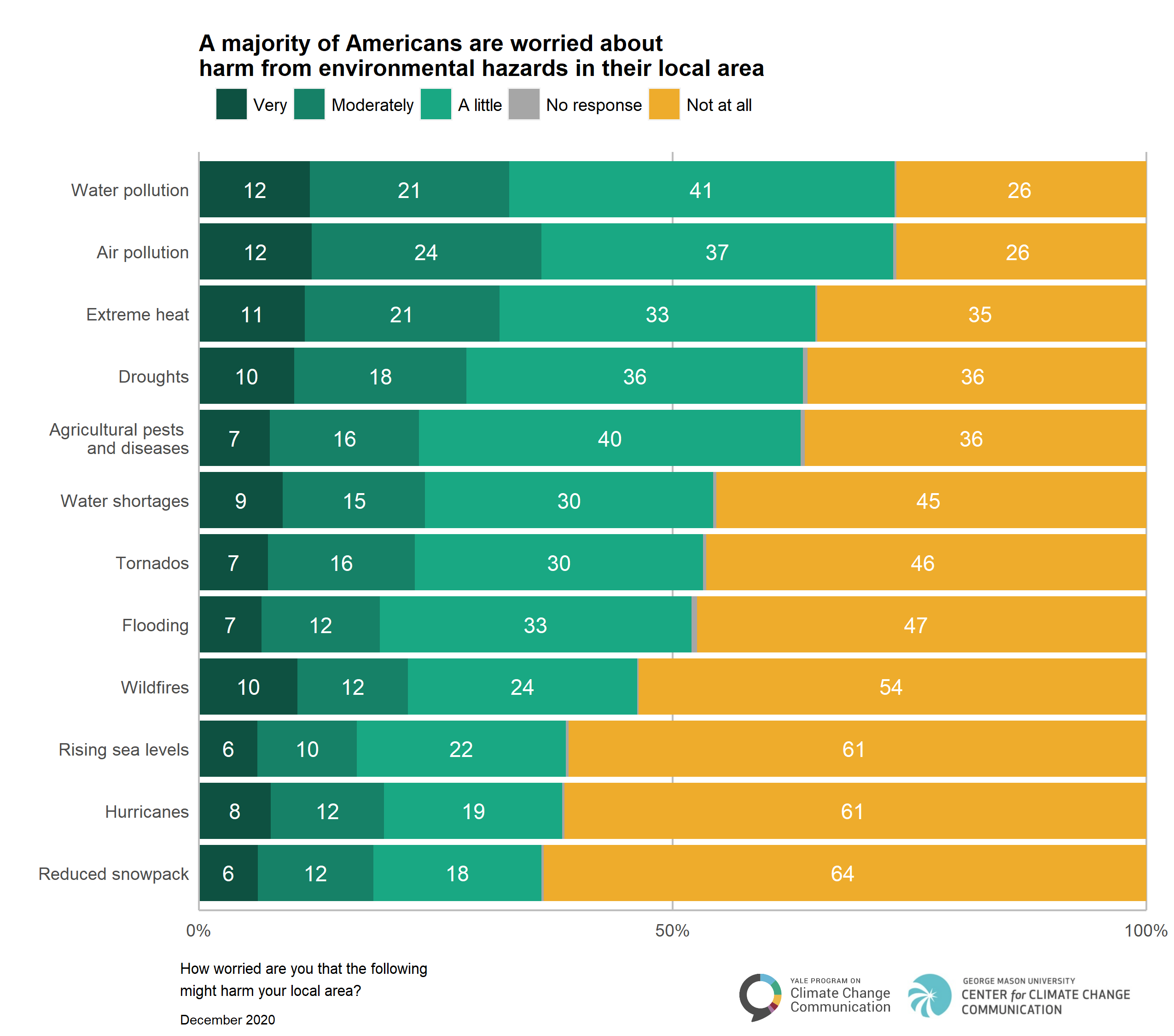Report · Feb 10, 2021
Climate Change in the American Mind: December 2020
By Anthony Leiserowitz, Edward Maibach, Seth Rosenthal, John Kotcher, Jennifer Carman, Xinran Wang, Matthew Goldberg, Karine Lacroix and Jennifer Marlon
Filed under: Beliefs & Attitudes
8. Global Warming and Severe Weather
8.1 About six in ten Americans think global warming is affecting weather in the United States.
About six in ten Americans (63%) think global warming is affecting weather in the United States, including more than half (56%) who think global warming is affecting U.S. weather either “a lot” (35%) or “some” (21%).
As noted above, 35% of Americans think global warming is affecting weather “a lot.” The percentage of Americans who think global warming is affecting the weather “a lot” has increased by 12 percentage points since we first asked this question in April 2013.
8.2 Two in three Americans think wildfires have increased as a result of global warming.
About two in three Americans either “strongly” (33%) or “somewhat” (32%) agree that wildfires have increased around the world as a result of global warming.
8.3 Many Americans think global warming made several extreme weather and related events worse in 2020.
More than half of Americans think global warming made the hurricanes and tropical storms that struck the U.S. Gulf Coast in 2020 (55%) and wildfires in the western U.S. (54%) worse, and about half think global warming made the derecho that caused record flooding in the Midwest (49%) worse.
8.4 A majority of Americans are worried about harm from environmental hazards in their local area.
A majority of Americans are at least “a little worried” about environmental hazards in their local areas, including water pollution (73%), air pollution (73%), extreme heat (65%), droughts (64%), agricultural pests and diseases (64%), water shortages (54%), tornados (53%), and flooding (52%). Fewer are worried about wildfires (46%), rising sea levels (39%), hurricanes (38%), or reduced snowpack (36%).
8.5 A majority of Americans think extreme weather poses a risk to their community.
A majority of Americans (55%) think extreme weather poses either a “high” (13%) or “moderate” (42%) risk to their community over the next 10 years. Fewer think extreme weather poses either a “low” risk (34%) or “no” risk (5%).





